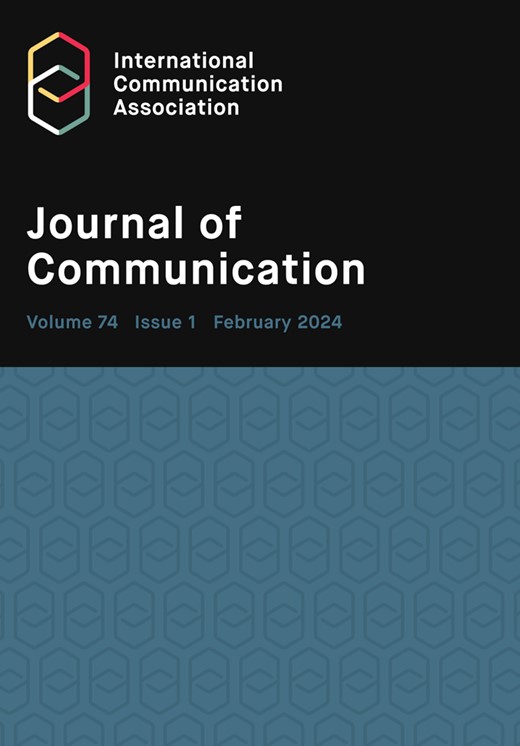谁的媒体自由受到保护?国际媒体自由运动中的规范争论
IF 5.5
1区 文学
Q1 COMMUNICATION
引用次数: 0
摘要
本文分析了国际宣传运动如何接近和定义媒体自由,以及影响这一过程的因素。通过对媒体自由联盟(由50多个国家组成的政府间伙伴关系)进行为期两年的案例研究,包括55次对主要利益攸关方的访谈、观察和文件分析。这个具有启发性的案例揭示了媒体自由规范是如何在国际舞台上构建和争议的,以及它们对记者、媒体自由和地缘政治的影响。我们表明,该联盟对媒体自由采取了以国家为中心、以问责为中心和消极的理解。这种论述使一种狭隘的、被动的、“轻资源”的方式合法化,这种方式支持媒体自由,关注“其他”国家。我们认为,批判性规范研究为理解该联盟的运作以及更普遍的全球媒体自由政治提供了有益的棱镜。这些发现对理解“规范创业”、“媒体帝国主义”和“媒体自由”本身具有重要意义。本文章由计算机程序翻译,如有差异,请以英文原文为准。
Whose media freedom is being defended? Norm contestation in international media freedom campaigns
This article analyses how international advocacy campaigns approach and define media freedom, and what influences this process. It does this through a two-year case study of the Media Freedom Coalition—an intergovernmental partnership of over 50 countries—that included 55 interviews with key stakeholders, observations, and document analysis. This revelatory case sheds light on how norms of media freedom are constructed and contested on the international stage, and their implications for journalists, media freedom and geo-politics. We show that the Coalition adopted a state-centric, accountability-focused, and negative understanding of media freedom. This discourse legitimized a narrow, reactive, and “resource-light” approach to supporting media freedom, focused on “other” countries. We argue that critical norm research provides a helpful prism for understanding this Coalition’s operations, and the global politics of media freedom more generally. These findings have important implications for understandings of “norm entrepreneurship,” “media imperialism,” and “media freedom” itself.
求助全文
通过发布文献求助,成功后即可免费获取论文全文。
去求助
来源期刊

Journal of Communication
COMMUNICATION-
CiteScore
11.60
自引率
5.10%
发文量
41
期刊介绍:
The Journal of Communication, the flagship journal of the International Communication Association, is a vital publication for communication specialists and policymakers alike. Focusing on communication research, practice, policy, and theory, it delivers the latest and most significant findings in communication studies. The journal also includes an extensive book review section and symposia of selected studies on current issues. JoC publishes top-quality scholarship on all aspects of communication, with a particular interest in research that transcends disciplinary and sub-field boundaries.
 求助内容:
求助内容: 应助结果提醒方式:
应助结果提醒方式:


